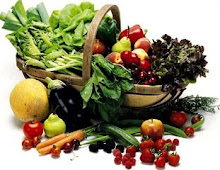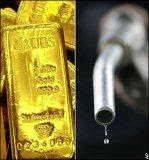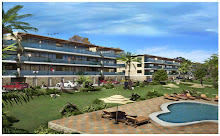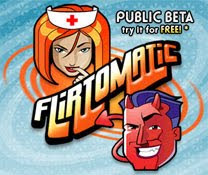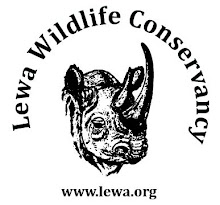Tasty new snacks and beverages are addressing beauty concerns. Will this whet the health conscious consumers appetite for nutricosmetics? While Western consumers are showing greater interest in supplements and functional foods and beverages that claim to lower cholesterol or boost immunity, the “inner route” to beauty just might be the African Tree of Life, the mighty Baobab. Here is why
With vitamins C and E, biotin, zinc and phytonutrients, Beautiful nourishes and hydrates the skin. Where can consumers find this new skin treatment? Try the candy aisle. It’s a Dove milk chocolate bar from Mars Snack food. The Mount Olive, US-based chocolatier is just one company touting functional foods and beverages considered nutricosmetics—the nexus of personal care and nutrition science.
The Baobab tree must be one of the most intriguing trees growing on the African continent - and is often referred to as the "upside-down" tree which can have a lifespan of up to 6,000 years. Baobab is highly moisturizing, emollient and soothing which is partly due to the ingredients found in the oil. It contains vitamins A, D, E and F. Vitamins A and F (which are polyunsaturated fatty acid) are actively involved in the rejuvenation and renewal of cell membranes, while vitamin E is a superior antioxidant, which helps to fight aging.
Baobab oil is ideal to help treat dry and damaged skin, as well as for intensive hair care and its soothing properties are helpful for eczema and psoriasis treatments due to the Omega 3, 6 and 9 contained in the oil. It is also said to alleviate pain from burns and regenerates the epithelial tissues in a short time, thereby improving skin tone and elasticity.
Market research firm Kline and Company values the global nutricosmetic market at $1.5 billion, with Europe and Japan accounting for a whopping 96% of sales. This presents a huge growth opportunity in both the U.S. and Asia where there is growing interest in these products, especially as the public become acquainted with a wider array of functional foods and drinks that promote health.
Inside Out Beauty Ltd., a UK-based company that touts Sip, a flavored water with beauty benefits, has extended its brand with new iced lollipops. LicketySip iced lollies—available in mango, lemon and blackcurrant—contain skin-friendly ingredients such as rose petal extract sourced from an organic farm, as well as vitamin C and selenium. They have no preservatives or artificial sweeteners or colours and are flavoured with fruit extracts. Baobab fruit pulp has a particularly high antioxidant capability mainly because of its high natural vitamin C content, which is equivalent to 6 oranges per 100 g. and twice the calcium content than milk.
Magic Fruits Beauty Snack GmbH, which launched a beauty snack in Austria in 2006, continues to expand distribution throughout Europe. The snack—which contains vitamins, trace elements and secondary plant compounds contained in freshly picked fruit—is now available in Germany and Switzerland, and will make its debut in Holland, Hungary, Scandinavia and Great Britain by the end of the year.
In addition to its high levels of antioxidants, baobab contains natural fibre, calcium and iron. The fruit is also a source of riboflavin (vitamin B2) and niacin (vitamin B3 or nicotinic acid), as well as pectin and citric, malic and succinic acids. Baobab powder is particularly suited as a nutritious additive for thicker drinks such as smoothies, and can also be used in jams, cereals and cereal bars, and biscuits. The healthy drinks and snacks market is are an ideal platform for baobab.
Drink Up!
For Tea Cakes, Luna teamed with The Republic of Tea, a company that boasts a wide range of specialty teas, including some with beauty-based functionality. The company’s Be Well Red Tea collection includes Get Gorgeous, an herbal tea that promotes healthy skin with South African Rooibos, a naturally caffeine-free, anti-allergenic herb recognized for antioxidant properties. Get Gorgeous, which has been available since 2006, also includes skin-soothing chamomile flowers rich in anti-inflammatory azulene, orange peel with bioflavonoids to strengthen veins and cell walls, hibiscus flowers for vitamin C, hormone-balancing chaste berry and burdock root.
Baobab is an example of a super fruit that started out in cosmetics but is moving into food and can now be found in so called ‘beauty foods’ such as cereal bars and smoothies. Baobab fits into the term ‘Turbo beauty trend’ that sees the power of formulations being ramped up to deliver real discernible results. Baobab is also probiotic, stimulating the healthy bacteria that inhabit the digestive tract, the body’s silent partners for good health, optimizing the power of the immune system to fight disease and the “bad” germs.
What a Pill!
Taste doesn’t matter nearly as much in the supplement side of the nutricosmetics market, where proponents contend a quick swallow delivers key nutrition that benefits skin, hair and nails. And while P&G pulled the plug on its ingestible beauty products, others hope their new supplements will win over mass consumers.
Earlier this year, Sally Hansen launched a new nutritional collection that includes topical Nail Nutrition Daily Growth Treatment and Nail Essentials Dietary Supplement. This once-a-day supplement delivers 3mg of Biotin to stimulate growth, smooth ridges and increase nail strength by 25%, according to the company. In addition, it contains vitamins to help neutralize free radicals that may compromise healthy nail growth and cystine and MSM, natural sources of sulfur that help form the supporting structure of nails.
Baobab seems to be king, it has so many beneficial properties your natural way of getting your essential vitamins and minerals.
· Excellent source of vitamin C
· High calcium content
· Antioxidant
· Prebiotic properties
· B-complex Vitamins (B1, B2, B3, B6)
· Minerals and; organic acids
· Natural source dietary fibers.
Dr Baobab of Wild Harvest Pharma points out the obvious link between diet and health.
“It makes so much sense to me; you are what you eat. But people are accustomed to thinking of it as topical skin care. They look at skin as a separate organ unrelated to the rest of the body,”
What’s Ahead
As experts debate their benefits, nutricosmetics and functional foods have caught the eyes of big players inside and outside the beauty industry, suggesting nutricosmetics will remain an area of focus.
For example, last fall, Anheuser-Busch signed an agreement with Borba to distribute and market its Skin Balance Waters and Aqua-Less Crystallines. Eyes are on Danone to see if it will bring Essensis, a “beauty” yogurt available in Europe, to the U.S. Rumors continue to swirl around the launch of Lumaé, a health and beauty soda from Coca-Cola and Nestlé, which owns a stake in L’Oréal. Kelly Just last month, Intelligent Nutrients, headed by Horst Rechelbacher, unveiled new certified organic health and beauty products including Intellimune oil and tablets, which deliver key antioxidants to prevent premature aging and combat oxidative stress.
According to Datamonitor, sales of functional foods in the U.S. alone are expected to rise 4.7% a year to $10.6 billion by 2012. But how will U.S. consumers increase their consumption of nutricosmetics. Baobab is to be processed and exported to US food markets, bringing in better incomes for rural African farmers. Now, the benefits of baobab (Adansonia spp.) are to be experienced by millions of overseas consumers, with the September 2009 announcement that the US Food and Drug Administration (FDA) has approved the importation of baobab powder, made from the pulp of the fruit, into the US.

According to a 2007 study written by marketing economist Ben Bennett of Britain’s Natural Resources Institute, the sustainable harvesting of baobabs has the potential to bring in an extra US$1-billion into Africa annually. Up to 2.5-million poor households stand to gain work and income through this.
Wild harvesting of baobabs and collecting fruit from the trees or the ground will ensure the sustainability of the process. And as a source of income, baobabs will act as a deforestation deterrent because people will be more eager to protect them and less willing to chop them down to clear space for other crops.

























